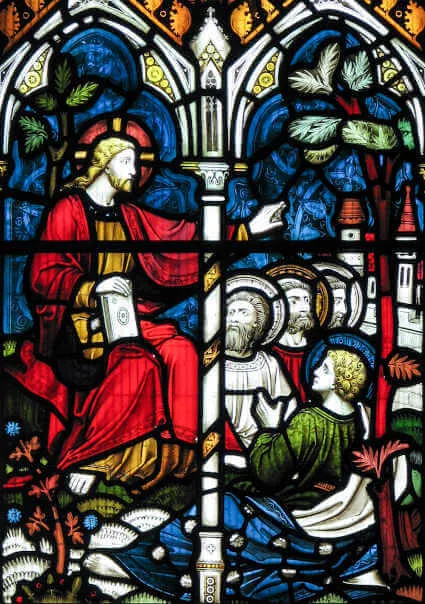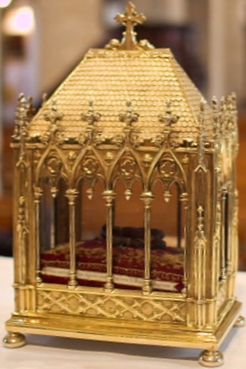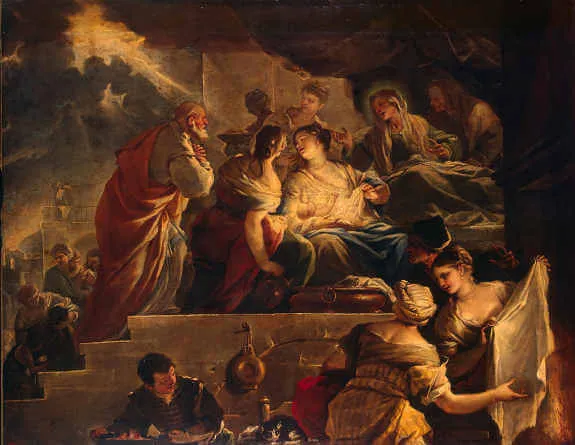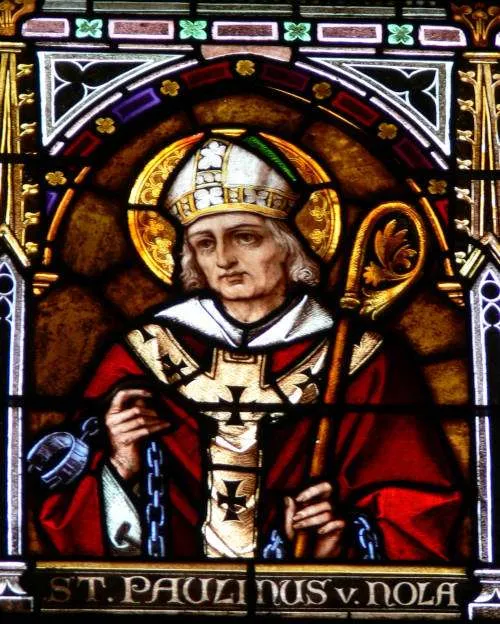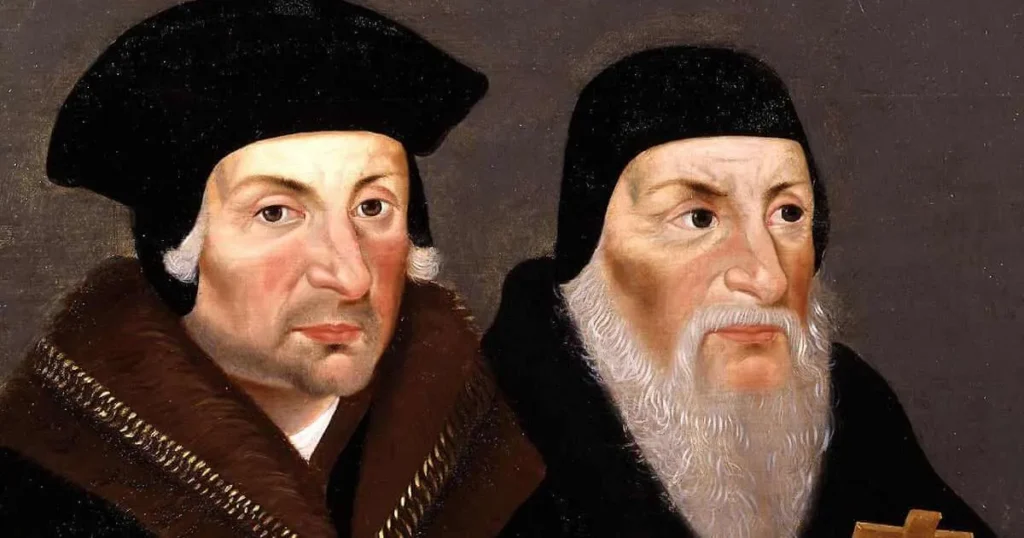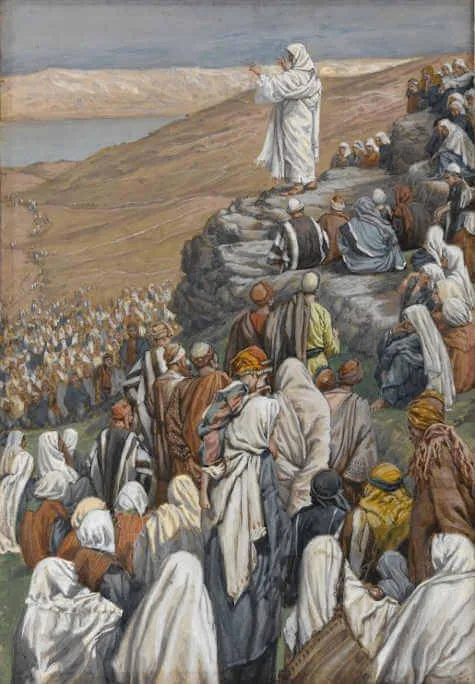Throughout the 1400s, the Catholic Church played a central role in the religious, cultural, and political fabric of England. Magnificent churches were built, monasteries thrived, clergy wielded influence, religious holidays were nationalized, and the Catholic Church collaborated with the state, in union with Rome. However, the tide began to shift during the rule of King Henry VIII (1509–1547) when King Henry severed ties between the Church of England and Rome to secure his divorce and remarriage. One year later, in 1535, the king martyred two of England’s greatest Catholic saints who opposed him, both of whom we honor today.
John Fisher was born in Beverley, Yorkshire, England, in 1469. At the age of fifteen, Fisher enrolled in the University of Cambridge, where he pursued studies in theology. He was ordained a priest around the age of twenty-two. His academic excellence led to an invitation to remain at Cambridge, where he fulfilled roles as a chaplain, professor, and eventually Vice-Chancellor and Chancellor.
In 1504, when he was approximately thirty-five years old, Father Fisher was ordained a bishop and appointed to the Diocese of Rochester. Despite serving in one of the smallest and poorest dioceses in England, Bishop Fisher became renowned for his preaching, pastoral care, and adherence to orthodox faith.
Thomas More was born in London, England, in 1478. His father, a well-respected lawyer and judge, ensured that Thomas received an education at one of London’s finest schools. At the age of twelve, Thomas served in the household of Archbishop John Morton of Canterbury, who was also the Lord Chancellor of England. Thomas’ intelligence quickly became evident, leading to his enrollment at the University of Oxford to prepare for future legal studies. During this time, he developed a strong faith, influenced by the witness of the Carthusians monks, and he contemplated a monastic vocation himself. Although he eventually chose a career in law, his life of prayer and penitential practices blossomed.
In 1505, Thomas married Jane Colt, with whom he had four children. He began working in Parliament and gained a favorable reputation. In 1510, he was appointed as an undersheriff of London, one of the city’s highest law enforcement positions. Unfortunately, Jane passed away in 1511, leaving Thomas with four young children. He soon married Alice Middleton, who lovingly cared for his children as a mother.
Over the next twenty-one years, Thomas’ faith, family, and career thrived. He became a member of the King’s Council, was knighted by King Henry VIII, and was elected as Speaker of the House of Commons. In 1529, he became the first layman to hold the post of Lord Chancellor, the highest-ranking legal position in England. After serving for approximately three years, he resigned, citing reasons of health. His primary motivation, however, was his opposition to Henry VIII’s actions regarding the Catholic Church.
The seeds of trouble were sewn in 1501 when Arthur, Prince of Wales, the firstborn son of King Henry VII, married Catherine of Aragon. The couple expected to ascend to the throne as king and queen after Arthur’s father’s death. However, Prince Arthur died five months later, passing the right of succession to the throne to his younger brother, Henry. An arrangement was made for Henry to marry Catherine, his late brother’s wife, once Henry came of age. Although such a marriage was typically prohibited, the pope granted a dispensation, based on Catherine’s testimony that she and Arthur had never consummated their marriage.
In 1509, King Henry VII passed away, and his son, Henry VIII, assumed the throne and married Catherine. Over the next twenty years, they had six children, all of whom died as infants except for one daughter, Mary, who would later become queen. In 1527, King Henry VIII sought an annulment of his marriage to Catherine, contending that it was invalid because she had, indeed, consummated her marriage to Arthur, which she denied. Henry further asserted that his lack of a male heir was a consequence of this unlawful union, signaling divine displeasure. The pope rejected Henry’s request for an annulment, provoking Henry’s anger and intensifying conflicts between him and the pope, along with those who opposed Henry among the clergy and civil servants.
In 1532, King Henry appointed Thomas Cranmer as the Archbishop of Canterbury. Sympathetic to those who sought reform of the English Church and separation from Rome, Cranmer supported Henry’s desire for a divorce from Catherine. He declared Henry’s first marriage null and void and validated his subsequent marriage to Anne Boleyn in 1533. In 1534, with the backing of Parliament, King Henry VIII proclaimed himself the head of the Church in England, effectively severing ties with the pope and the Roman Catholic Church.
Today’s saints, Saints Thomas More and John Fisher, were among the few who refused to accept the king’s decisions. Bishop John Fisher firmly defended the bond of marriage, stating that he was willing to die, just as Saint John the Baptist did, for the defense of marriage. This outraged the king. Eventually, the king had Bishop Fisher arrested before he could publicly oppose the new queen’s coronation. Though he was initially released, he was arrested again on April 26, 1534, and remained in prison under extremely harsh conditions, deprived even of a priest to minister to him, until his death about fourteen months later. Before Fisher’s death, the pope declared him a cardinal as a way of adding pressure on the king to release him, but this only angered the king more. Cardinal Fisher’s defense was to remain silent and say nothing from prison. Eventually, he was tricked into speaking, confessing his opposition to the king, which led to his beheading. Every other bishop, except for two, gave their support to the king, bringing a painful end to the Catholic Church in England.
Like Cardinal Fisher, Thomas More refused to support the king’s claim that he was the head of the Church of England, and he refused to publicly support the coronation of the new queen. After More refused to attend the coronation, he was arrested and put on trial for treason. His defense was also to remain silent, but he was found guilty and executed about two weeks after Cardinal Fisher. Cardinal Fisher’s head had been mounted on London Bridge for two weeks after his death, but it was taken down and replaced by More’s upon More’s execution.
The fall of the Catholic Church in England is perhaps one of the saddest moments of Church history. However, because of the courage of these two martyrs, it is also one of the brightest. Though they were abandoned by most, they are now honored as saints and martyrs and will forever wear those glorious crowns in Heaven.
As we honor these two great martyrs, ponder their eternal perspective and willingness to endure suffering and death rather than compromise their faith. As you do, pray that you, too, will always live for the glory of God and the salvation of souls, even if it means hardship, suffering, or even death, preferring the glorious crown of righteousness in Heaven.
Source: https://mycatholic.life/saints/saints-of-the-liturgical-year/june-22—saints-john-fisher-bishop-and-martyr-and-thomas-more-martyr/


